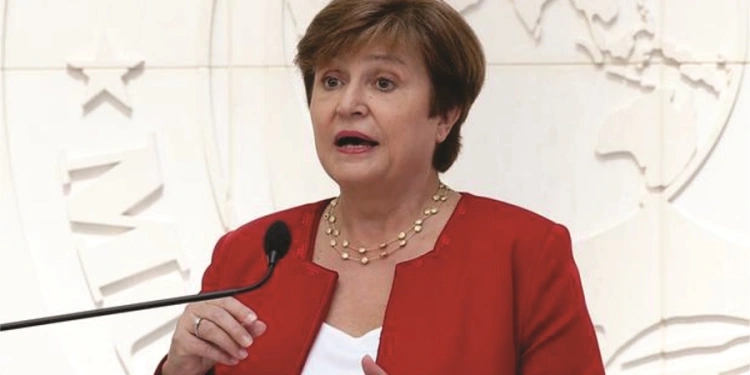The International Monetary Fund (IMF) has warned that price caps on fuel and electricity tariffs below the cost recovery could result in a fiscal cost amounting to 3% of GDP in 2024.
The staff of the Fund in their report on completion of their mission to Nigeria welcomed the recent policy decisions by the government especially the increase in MPR by 400 basis points to 22.75% last month stating that the decision will help tame inflation.
According to the report, Nigeria made improvements in revenue collection and oil production although persistent low revenue mobilisation weakened government’s response to certain macro-economic shocks and promotion of lasting development.
- It stated, “Non-oil revenue collection improved by 0.8 percent of GDP in 2023, helped by naira depreciation. Oil production reached 1.65 million barrels per day in January as the result of enhanced security. The capping of fuel pump prices and electricity tariffs below cost recovery could have a fiscal cost of up to 3 percent of GDP in 2024.
- Although it noted that the cash transfer program should be implemented before the government addresses the ‘’costly, implicit fuel and electricity subsidies.”
8% of Nigerians are food insecure
The report also called on the federal government to prioritise tackling food insecurity estimating the number of food insecure Nigerians to be almost 1 in 10 at 8% of Nigeria’s over 200 million population. It then welcomed the federal government’s drive to reform the social welfare system and the release of grains across the country.
- The report reads, “With about 8 percent of Nigerians deemed food insecure, addressing rising food insecurity is the immediate policy priority. In this regard, staff welcomed the authorities’ approval of an effective and well-targeted social protection system. The team also welcomed the government’s release of grains, seeds, and fertilizers, as well as Nigeria’s introduction of dry-season farming.”
What you should know
Although the federal government stopped subsidy payment on PMS (fuel) since June 2023, there are feelers that there is tacit payment of subsidy considering the exchange rate for the importation has increased significantly without commensurate increase in the petrol pump price.
- According to the NBS Petrol price watch for January, the average price of PMS stood at 30. However, the PMS pump price for July 2023 after the subsidy payment stopped stood at N600.35. While the July, the naira was exchanging to the USD at an average of N750/$, today it averages around N1500/$. According to Nairametrics daily FX monitor, the naira exchanged for N1,534.9/$1 on the official window.
- Also, the federal government through the Nigeria Electricity Regulatory Commission disclosed earlier in 2024 of plans to spend around 67 trillion on electricity subsidy in 2024– an increase of 170% compared to the previous year.

